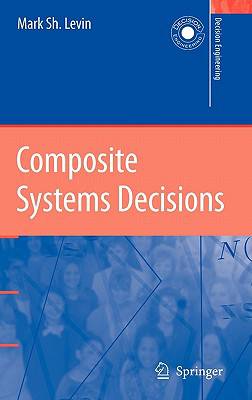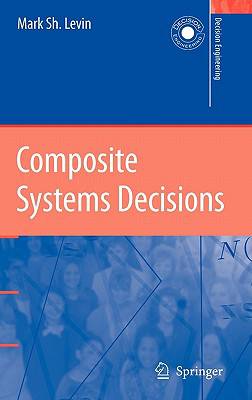
- Afhalen na 1 uur in een winkel met voorraad
- Gratis thuislevering in België vanaf € 30
- Ruim aanbod met 7 miljoen producten
- Afhalen na 1 uur in een winkel met voorraad
- Gratis thuislevering in België vanaf € 30
- Ruim aanbod met 7 miljoen producten
Omschrijving
Composite decisions consist of subdecisions and correspond to a composite system. This approach extends the traditional paradigm of decision making of Herbert A. Simon, i.e. choice of the best alternative(s), and realizes a two-stage solving scheme: (a) selection of alternatives as the best subdecisions/local decisions and (b) composition of these local decisions into a composite global decision, accounting for the quality of the local decisions and their compatibility.
This book describes an approach based on systems engineering and considered modular design of composite decisions. It describes basic systems approaches and examines basic 'technological' problems for composite systems (with applied examples), including: modular hierarchical design; multistage design and planning; redesign/improvement/adaptation; evaluation; and, combinatorial evolution/development.
Applied researchers, students, and practitioners will find this book of value. It will also interest mathematicians, computer scientists, economists and social engineers.
Specificaties
Betrokkenen
- Auteur(s):
- Uitgeverij:
Inhoud
- Aantal bladzijden:
- 254
- Taal:
- Engels
- Reeks:
Eigenschappen
- Productcode (EAN):
- 9781846280016
- Verschijningsdatum:
- 2/12/2005
- Uitvoering:
- Hardcover
- Formaat:
- Genaaid
- Afmetingen:
- 163 mm x 238 mm
- Gewicht:
- 517 g

Alleen bij Standaard Boekhandel
Beoordelingen
We publiceren alleen reviews die voldoen aan de voorwaarden voor reviews. Bekijk onze voorwaarden voor reviews.











